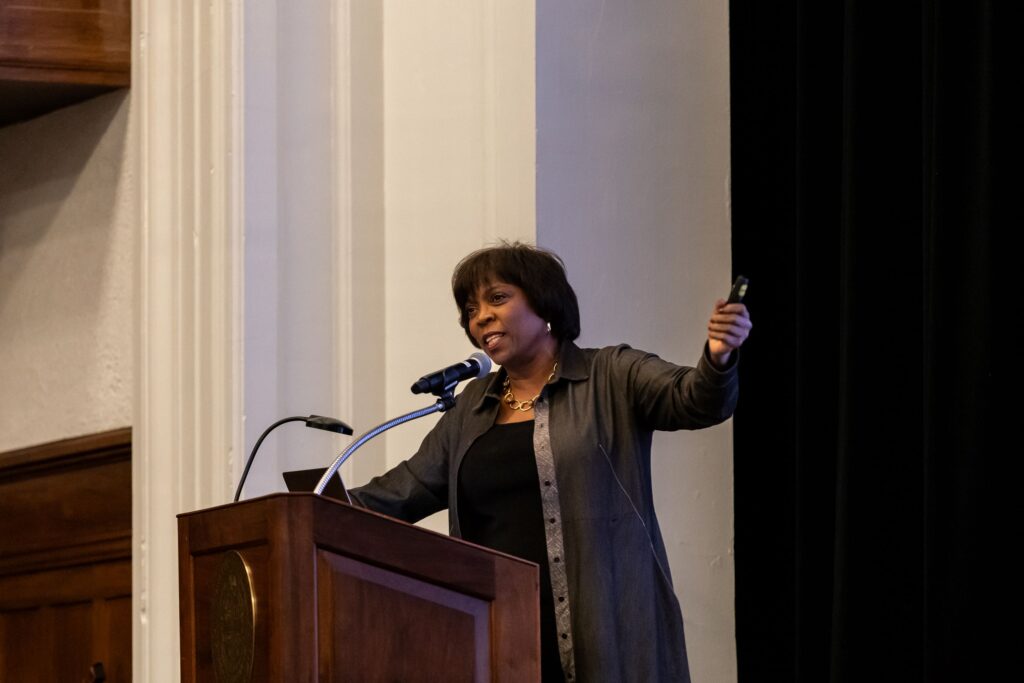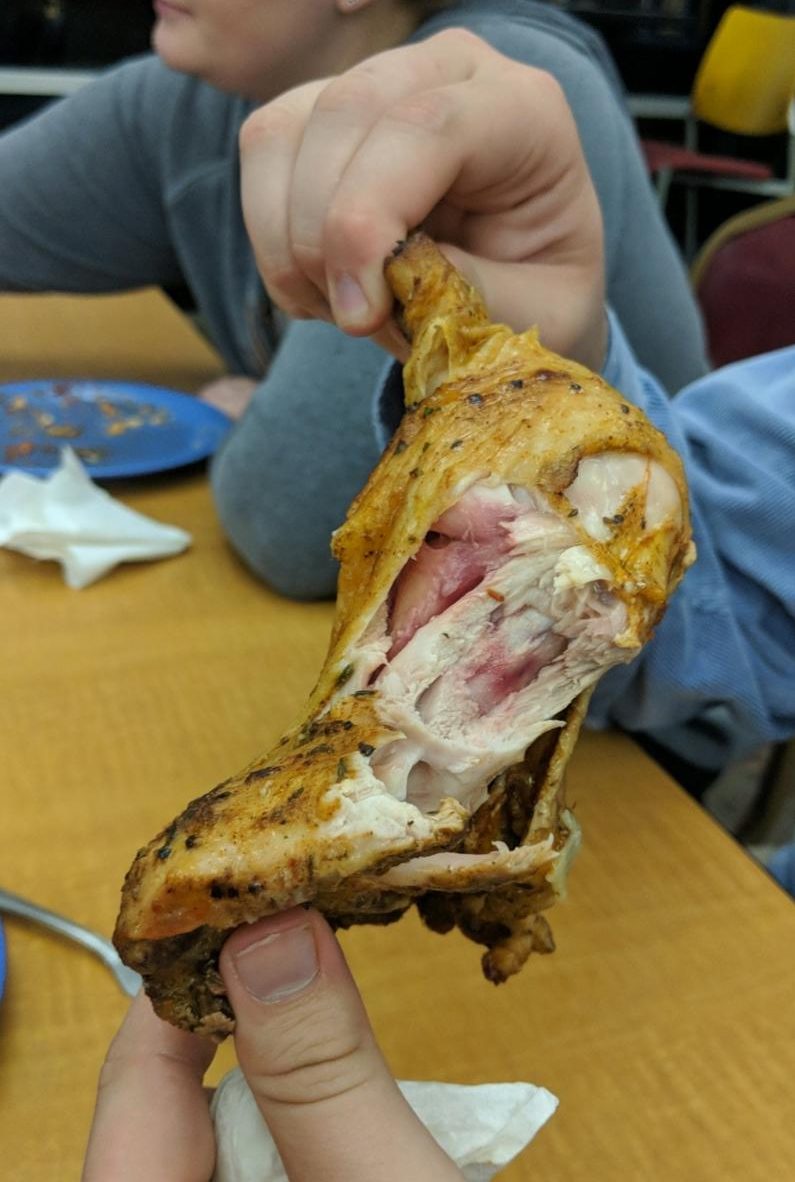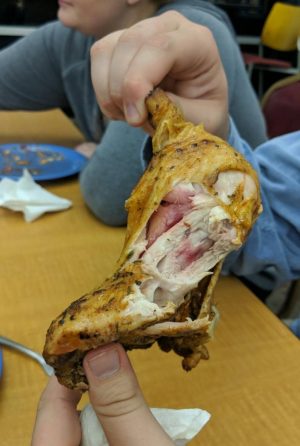Dining Hall Management Addresses “Pink” Meat
Students Encouraged to Communicate and Ask Questions of Staff
November 8, 2019
Bridgewater, Va.- On Thursday, Oct. 24, Bridgewater College sophomore Reilly Perry sat down with a piece of bone-in chicken from the dining hall only to find the meat was red in the center.
Along with BC senior Branisha Meekins, who also cut into “pink” meat in the dining hall the next day, several students have shared concerns over the quality of dining hall foods.
A poll conducted by BCVoice found the majority of student respondents—84% of those who responded on Twitter—were not satisfied with the dining hall’s food quality. Managers Geordon Duncan and Christopher Beach assured students that discoloration in meats are typically due to the use of nitrates, which are preservatives.
Viewing the photo of Perry’s uncooked chicken, Director of Board Operations at the College for Eat n’ Park Hospitality Group, Inc., Christopher Beach explained batch cooking is sometimes an issue.
“We’ve eliminated the source, which is bone-in chicken,” said Beach explaining boneless chicken is easier to thoroughly cook because it can be “flattened out” more and prepared more easily.
General Manager of Parkhurst Geordon Duncan clarified the dining hall is moving forward with “new chicken specs” to make sure full cooking is successful.
Hearing BCVoice’s poll results, Beach said surveys are done by management once per year. In addition to these surveys, they make staff members and management more accessible, incorporate rewards for student feedback, post on social media, and hold dining hall committee meetings the first Wednesday of every month outside of their offices.
Not all feedback can be used due to contract standards, but management makes “every effort to accommodate,” said Duncan.
Beach clarified that some concerns cannot be fully addressed due to contract rules. For example, the deli section has to be opened and closed at specific hours, and the omelet bar cannot be open other than set times.
The management also takes feedback to bring seasonal items in. Duncan mentioned a student inquiring about coffee creamers, so she simply ordered flavored creamers for the coffee station.
“If [students] elect to eat pizza or fries every day, they’re not seeing the diverse options,” Beach said. While feedback is appreciated by the management, Beach explained students have to “buy in” to these special offerings so feedback can be effective.
Regarding student concerns of uncooked chicken or pork, Beach explained nitrates—taking the appearance of “pink Himalayan salt” in foods—often discolor food even when it is cooked to the correct internal temperature.
Senior Branisha Meekins tried the German Food Day bratwurst Friday, Oct. 25, but took her plate back once she noticed the pork was pink in the middle. One team member said the meat was fine; however, another team member insisted it should not be eaten.
Beach and Duncan explained this was due to nitrates and that understanding how nitrates look in cooked food is “an educational piece.” After checking the temperature of the bratwurst, the staff determined it was higher than required holding temperature and thus safe to eat despite its appearance.
As for staff training to recognize standards, Beach explained, “our employees are always being coached and trained, retrained…we have new employees…we have senior veterans, it’s always that mixture with the knowledge piece.” Staff are required to take temperatures of food hourly.
According to Deborah Dunn-Frederick, instructor in the Department of Health and Human Sciences, research shows, “the pink color of chicken seems to be okay to eat as long as the chicken is cooked to an internal temperature of 165 degrees [Fahrenheit]…the nitrates are inspected by the USDA that are used in poultry.”
Dunn-Frederick shared an article titled Sodium Nitrate in Processed Meat and Poultry Meats: A Review of Curing and Examining the Risk/Benefit of Its Use by Jeffrey J. Sindelar and Andrew L. Milkowski. The article claims, “Meat and poultry curing is one of the oldest forms of food preservation still in use today.”
The article also stated nitrates are important to bodily functions despite controversies over their implementation. The preservatives are also instrumental in preventing mass food spoilage helping ensure “the safest products are reaching their customers.”
Discussing the contracting relationship and standards with Parkhurst Dining Services, Vice President of Finance Anne Keeler explained many colleges nationwide use the company. Keeler said she felt Parkhurst was held to very high standards after researching multiple companies.
“Once we hire them, then they have the best pool and the best understanding of what educational background and what training different individuals need for their different positions,” said Keeler.
Although pleased with Parkhurst Dining Services, Keeler encouraged students to have discussions with dining hall management or herself if they feel the company’s standards are not sufficient.






























































